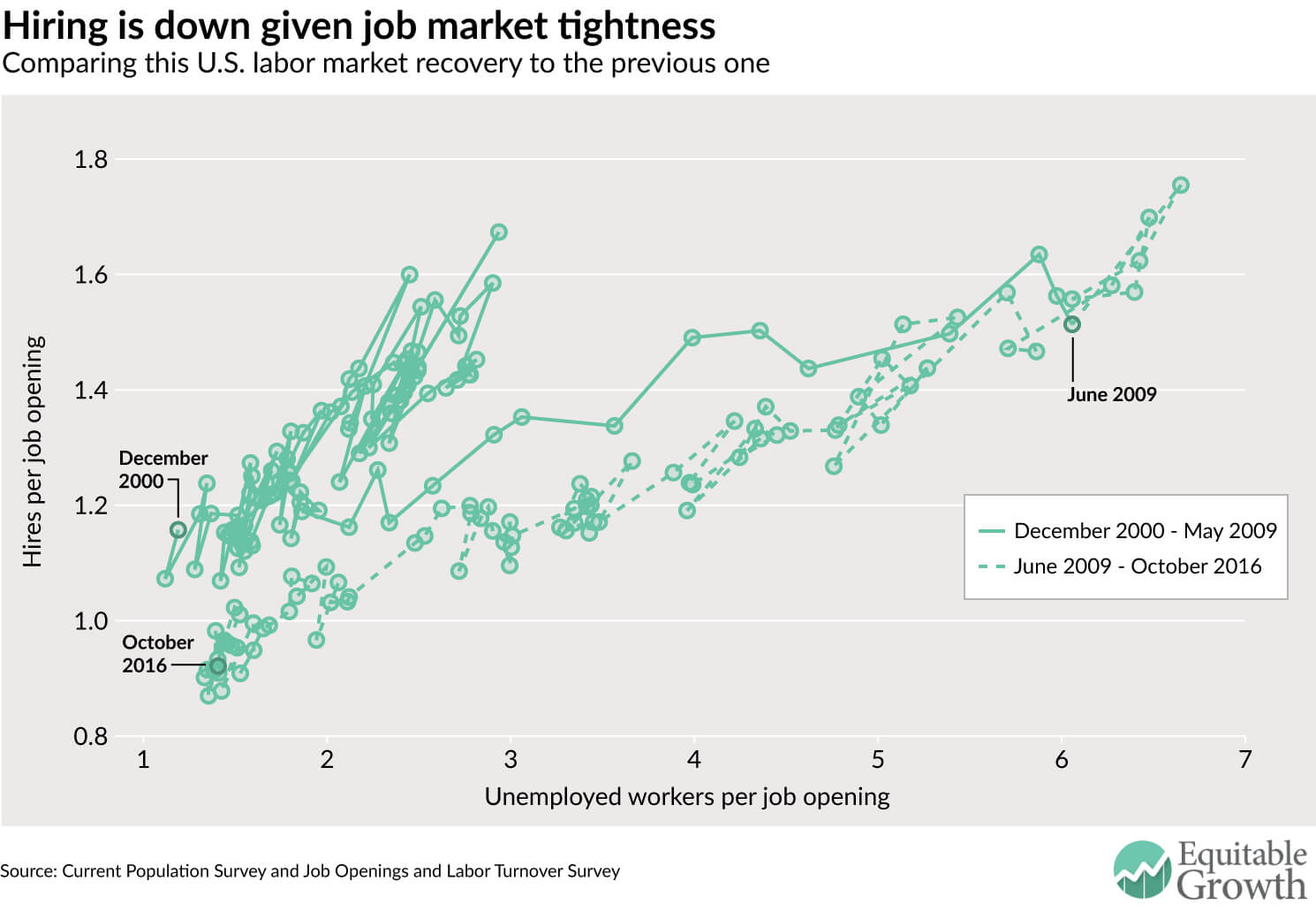Weekend reading: “Thawing out from #ASSA2017” edition
This is a weekly post we publish on Fridays with links to articles that touch on economic inequality and growth. The first section is a round-up of what Equitable Growth published this week and the second is the work we’re highlighting from elsewhere. We won’t be the first to share these articles, but we hope by taking a look back at the whole week, we can put them in context.
Equitable Growth round-up
The annual meeting of the Allied Social Science Associations was this past weekend in Chicago. Here are the highlights of presentations Equitable Growth staff saw during the first, second and final days of the meeting.
Among the highlights was a new paper by several economists on the decline in labor’s share of income. The research points to rising concentration of businesses and the rise of “superstar firms” as a major contributor to the decline in the labor share of income.
The continued existence of the Affordable Care Act is an open question these days. Kavya Vaghul looks at the potential distributional effects if the health care law is repealed.
Links from around the web
Claudia Sahm reflects on the 2017 meeting of the ASSA and comes up with three stories from the conference about economists and economics research. [claudiasahm]
Milton Friedman famously suggested that a people’s consumption responds more to changes in their permanent income than to temporary changes in income. Noah Smith argues that hypothesis is dead wrong. [bloomberg view]
Riffing on Robert Shiller’s American Economic Association Presidential address, Martin Sandbu writes about the importance of narratives for understanding not just economics but also how those narratives affect the economy. [free lunch]
Is the zero lower bound a technical problem that can be solved by policymakers, an intractable problem for modern macroeconomics, or not a special case at all? J.W. Mason raises these questions. [slackwire]
Guy Rolnik interviews Sandra Black, a member of President Obama’s Council of Economic Advisers, on the influence of labor market monopsony, or the ability of employers to set wages. [pro-market]
Friday figure

Figure from “U.S labor market tightness, hiring, and the decline in job switching” by Nick Bunker

